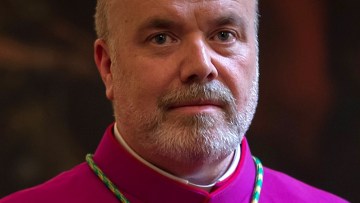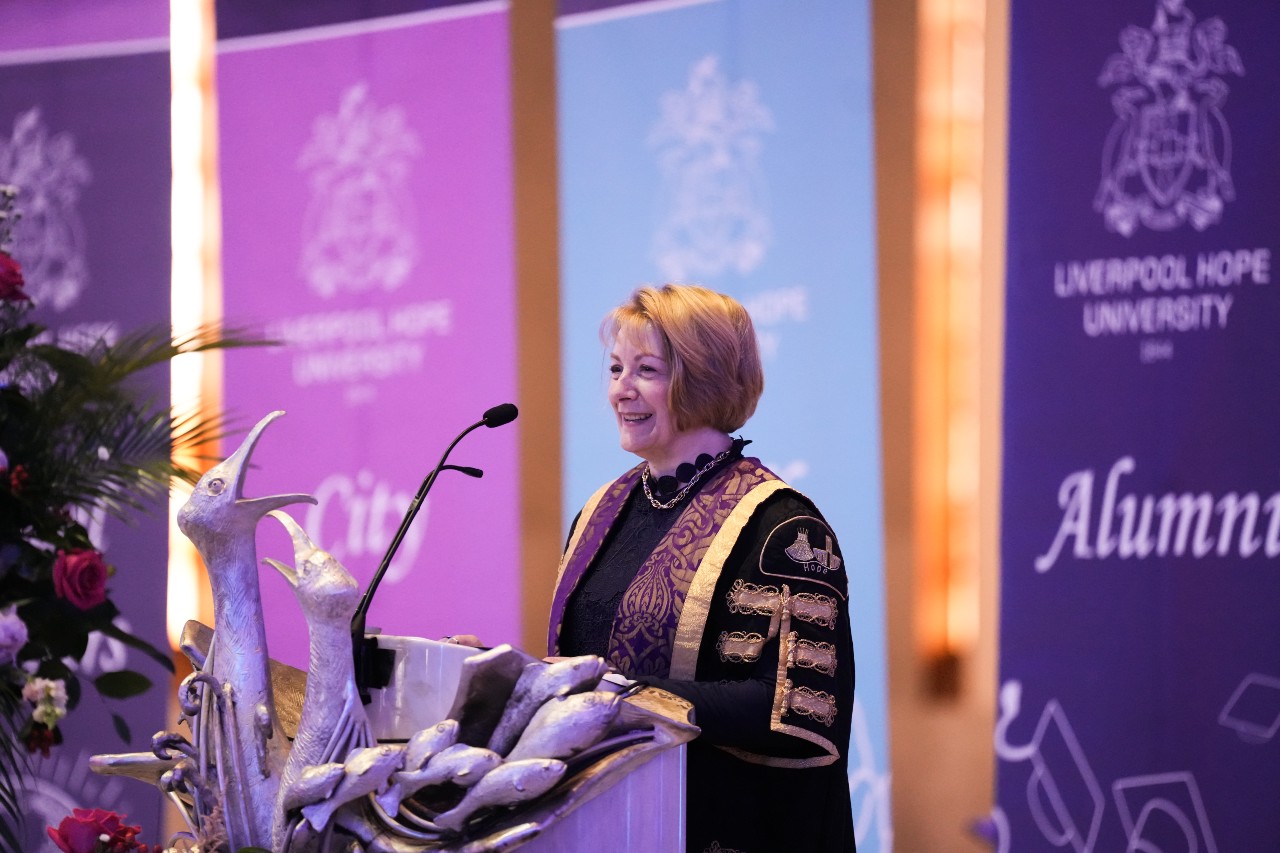Columbans launch Biodiversity Matters schools competition
 The Columban Missionaries in Britain announce the launch of their latest Schools Media Competition 2023-2024 which has the title: ‘Biodiversity Matters’. The launch is during the first week of the Season of Creation when Christian communities around the world focus on valuing and protecting God’s creation. And a core aspect of Columban mission is justice, peace and ecology.
The Columban Missionaries in Britain announce the launch of their latest Schools Media Competition 2023-2024 which has the title: ‘Biodiversity Matters’. The launch is during the first week of the Season of Creation when Christian communities around the world focus on valuing and protecting God’s creation. And a core aspect of Columban mission is justice, peace and ecology.
The competition is aimed at students aged between 13-18 years old in Catholic schools who are invited to explore Biodiversity – the richness of life forms on Earth and which humanity relies on for health, food and well-being. It is looking for pieces of writing and images that demonstrate an awareness and understanding of the issue of Biodiversity and highlight people, communities and/or organisations trying to build a sustainable future.
Pope Francis has told us that "because of us, thousands of species will no longer give glory to God ... We have no such right" (Laudato Si' #33)
Columbans worldwide see the devastating impacts of climate change and biodiversity loss on people and the environment as interwoven moral issues in need of prophetic responses. Inspiration for action is drawn from the 2015 teaching document by Pope Francis, Laudato Si'.
In his role as Columban Justice and Peace Education Worker in Britain, James Trewby visits young people in schools and sixth forms and runs workshops, retreats and assemblies to promote justice, peace and the integrity of creation.
He said: “I’m delighted that the Columban Schools Media Competition this year focuses on the theme of Biodiversity. In a world of increasing globalisation and environmental degradation, management of biological diversity is one of the most important and critical challenges facing humankind today. The Columbans are keen to nurture the student voice and provide an opportunity for young people to engage with this issue.”
Encouraging creativity and faith engagement with issues in the world today, this year’s competition welcomes both written and image entries until the closing date of 17 February 2024. Winners will be announced on Columban media on 21 March 2024, the International Day of Forests.
Two separate competitions will be judged, one for students in Britain and one for students in Ireland. Cash prizes will be awarded to the winning entrants and the first prize in Britain is an impressive £500.
High-profile judges from the world of journalism have been secured, including Ruth Gledhill of The Tablet and Jo Siedlecka of Independent Catholic News. Also, Catholic experts on environmental protection and education, including Columban eco-theologian Fr Sean McDonagh and environmentalist Mary Colwell.
Winning entries will be published in the Columbans’ Far East magazine, Vocation for Justice newsletter, Columban websites in Ireland and Britain, Columban social media and in other Catholic media.
Schools will find the Columban Competition website a useful resource. It includes information on the theme, examples of Church work on Biodiversity, Catholic Social Teaching on the theme of Biodiversity and information about inspirational Catholics working on the issue. There are also details on submission of entries and a helpful FAQ page. The website provides material suitable for students, teachers and parents.
This is the seventh annual School’s Media Competition. Past themes have included Migrants, Climate Change, Racism, 21st Century Changemakers and Peace.
Gathering together for Education Sunday
 This year, the 10th of September marks the celebration of Education Sunday for the Church in England and Wales.
This year, the 10th of September marks the celebration of Education Sunday for the Church in England and Wales.
In our prayer intentions, we will ask Almighty God to bless all people involved in Catholic education, and to bless the year ahead.
The resources provided to schools and to parishes focus on the promise given by Jesus in St Matthew’s Gospel: Where two or three meet in my name, I shall be there with them (Matthew 18:20).
As students and staff gather for Education Sunday, they can take these words to heart, for our Lord Jesus Christ always keeps His promise: you are gathered together in His name and He is with you as you work, learn, pray, grow and live out your mission.
The great desire of Jesus is to be with us and to invite us to enter into a personal relationship with Him, a relationship of love. When a person knows they are truly loved, a new confidence abounds.
The mission of our Catholic schools, colleges and universities is to provide a holistic education which enables the lives of children and young people to flourish and for them to be formed into the men and women that God the Father has created them to be.
We owe much gratitude to all those who have governed, led, taught and supported the children and young people in our Catholic schools, colleges and universities over the years, and those who continue to create the environments and opportunities for a loving encounter with our Lord Jesus Christ.
Since the 19th century the Catholic Church has become the country’s largest provider of secondary schools and second-largest provider of primary schools. They now outperform national averages for GCSE English, Maths and Religious Education results, while taking in more pupils from the most deprived backgrounds.
On Education Sunday, as we gather in the name of the Lord Jesus and have confidence that He is with us as He promised, let us give thanks to Almighty God for all the ways He has been present to us amidst the joys and sorrows of our life. Let us invite Him to be with us over the coming academic year.
The Right Reverend Marcus Stock MA, STL
Bishop of Leeds
Chairman of the Catholic Education Service
The CES and Ten Ten Resources have produced free, downloadable Education Sunday resources for use by schools and parishes.
Catholic schools and universities need your help

Since the 19th century the Catholic Church has become the country’s largest provider of secondary schools and second-largest of primary schools, along with four universities – but now they need your help.
Educational institutions are generally governed by a body made up of different types of representatives, such as parent governors and teacher governors.
Catholic schools and universities also include foundation governors, who volunteer to ensure the Catholic vision and character of the school is upheld. Appointed on behalf of the Bishop, foundation governors should always form a majority.
Since the pandemic Catholic educational institutions have experienced vacancies for foundation governors, and more are needed to sustain their Catholic ethos and leadership.
Paul Barber, Catholic Education Service Director, said: “As throughout history, Catholics must be prepared to support, promote and defend Catholic education.
“Practising Catholics could make excellent foundation governors, or know someone who might be interested, so please find out about getting involved by contacting your diocese.”
Foundation governors come from all walks of life, bringing a mix of skills, knowledge and experience. Catholic school pupils in England and in Wales are from significantly more diverse ethnic minority backgrounds than the state sector, and governing bodies should reflect this.
The main role of a governing body is at a strategic level, holding leadership to account; overseeing financial performance and setting the budget; managing admissions criteria; and being involved in recruiting to the most senior roles.
Being a foundation governor involves attending on average three full governing body meetings per year as well as serving on a committee focusing on issues such as staff pay, or admissions. Free training is provided by the diocese.
The 2,169 schools, colleges and academies in England and Wales continue to be true to their mission, by educating more pupils from the most deprived backgrounds, and also outperform national GCSE English, Maths and Religious Education averages.
Foundation governors are also needed for Catholic higher education, at Leeds Trinity, Liverpool Hope, Birmingham Newman and St Mary’s universities.
To find out more about becoming a school foundation governor please contact your diocese. If you are interested in becoming a governor at a Catholic university please contact: This email address is being protected from spambots. You need JavaScript enabled to view it.
The ‘muddy boots biologist’ who is the new Vice-Chancellor of Liverpool’s Catholic university
 Liverpool Hope is one of four Catholic universities in England, and on 13 July held an inauguration ceremony at the city’s Metropolitan Cathedral for its new Vice-Chancellor, Professor Claire Ozanne.
Liverpool Hope is one of four Catholic universities in England, and on 13 July held an inauguration ceremony at the city’s Metropolitan Cathedral for its new Vice-Chancellor, Professor Claire Ozanne.
With just over 5,000 students, the university is the only such foundation in Europe and the USA where Catholic and Anglican colleges have joined together, and takes its name from Hope Street, which links both of Liverpool’s cathedrals.
Anglican St Katharine’s College was founded in 1844, and Catholic Notre Dame College in 1956, both institutions being created by the Churches in response to the need to train people to educate the poor and disadvantaged. They were joined by Christ’s College of Education, established in 1964 as a centre for Catholic reflection and education.
Professor Ozanne gained her DPhil from Oxford University and her work has focused on habitats influenced by human activities, leading multidisciplinary projects in the UK, Australia, Nigeria, Ethiopia and Guyana.
Formerly the Deputy Director and Provost at the University of London’s School of Oriental and African Studies, and in 2017 seconded to be Principal at Heythrop College, she was also Vice Provost at the University of Roehampton.
Liverpool Hope’s fourth Vice-Chancellor and Rector is a Professor of Ecology, an early interest born out of walks in the countryside with her family, who encouraged her to explore and ask questions about the natural world, as well as an inspirational school biology teacher and university tutor.
Professor Ozanne said: “I was fortunate to be able to bring together my love of trying to understand how systems work and that of the outdoors – I often describe myself as a ‘muddy boots’ biologist.”
Campus environment
She believes Catholic higher education institutions can play a role in implementing Pope Francis’s encyclical Laudato Si’: On Care For Our Common Home in several ways.
This includes integrating two of the Laudato Si’ goals, Cry of the Earth and Cry of the Poor, through teaching and research; providing opportunities for students to engage in practical ways of living in harmony with the Laudato Si’ goals and skills to advocate for them when they graduate; and for universities to minimise their footprint on the planet.
“As a field ecologist I am always aware of the interactions between ecosystems and people in terms of resource needs and conservation,” Professor Ozanne said. “We need to provide solutions to the complex problems of stewarding our planet, and championing climate justice.”
Common ground
The university’s ecumenical ethos is manifested in a connection to qualifications that serve the common good. This is reflected in recognition of the importance of education studies, teaching, health and social sciences, as well as the arts and humanities and their contributions to human flourishing.
Professor Ozanne said: “As vital as STEM subjects are, we need to acknowledge the significance and contribution of theologians, historians, philosophers, writers, composers and many other scholars from the broad range of the arts and humanities subjects.
“We want to enable our students to be ready for the work of the world, as well as the world of work.”
Adapting to challenges
The move to virtual learning during lockdown periods enabled thinking about offering education in different ways, particularly in terms of international, postgraduate education or professional development where there are opportunities for more flexible, hybrid and on-line learning.
There have also been longer-term effects on how research is conducted, with opportunities for new methodologies and international partnerships.
Professor Ozanne said: “All universities are challenged by the increased marketisation of higher education, our Catholic universities in England are relatively small and so not able to take advantage of the economies of scale of large universities.
“Catholic universities in the UK have also to rise to the challenges of increasing secularisation, and a diminishing knowledge base and points of reference related to faith and church in our communities.”
Local support
Liverpool Hope is one of three universities within the world-famous city, and its areas of research strength in the humanities, environmental sustainability, Artificial Intelligence and future technologies complement neighbouring institutions John Moores and the University of Liverpool.
Local and regional Catholic primary, secondary schools and colleges are partners with Liverpool Hope’s School of Education. They support trainee teachers on the university's initial teacher training programmes, providing high quality mentors and rich, formative learning experiences.
The university also works to support the Archbishop’s and Bishops' vision for multi-academy trusts, with representation on director and governing boards, and with research supporting Diaconal training, liturgical and children’s music. It also facilitates a local choir, gardening groups and works with residents’ associations and churches to support community activities, as well as businesses and charities for the improvement of the Liverpool City Region.
Undergraduate and postgraduate international students come for full degrees or a semester abroad experience, some because of its Catholic roots and ecumenical ethos. They also come to the university from global partner institutions with Christian foundations and similar commitments to student-centred education and support.
Professor Ozanne said: “I believe that many choose Liverpool Hope because of its true sense of community.
“We are a university that knows its students by name. We are a smaller university than our fellow higher education institutions and this, combined with our ethos of educating students in the round means that we offer students a personalised educational experience that includes any academic or pastoral support that they need to get the most out of their time at university.”
Equitable future
Ultimately, the new Vice-Chancellor's vision for the university is of a transformational education for students, continuing its excellent research into providing solutions to local and global challenges. It is also as an anchor institution in the North West, contributing to the development of a skilled, future-ready workforce, and for partnerships nationally and internationally to realise a more equitable society.
She said: “At Liverpool Hope I also want to ensure that our values of faith, hope and charity, our strong sense of community and our ethos of educating and developing the whole person are embedded in what we do.”

